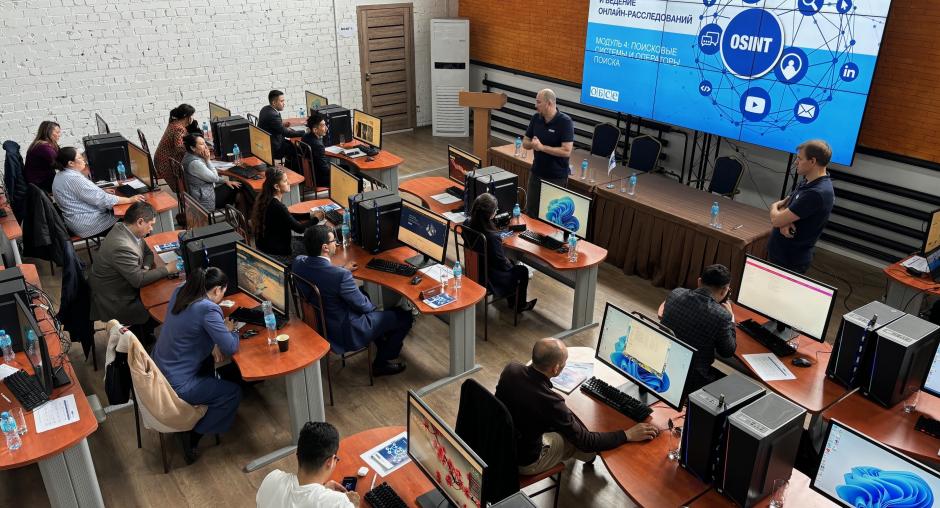OSCE delivers training on open-source intelligence and online investigations to law enforcement representatives from Kazakhstan and Tajikistan

How to conduct online investigations as well as effectively identify and collect data and information from online open sources was the focus of a training course organized by the OSCE Transnational Threats Department in Kosshy, Kazakhstan from 13 to 17 May 2024.
Over 20 law enforcement representatives from Kazakhstan and Tajikistan took part in the course, which was held at the Law Enforcement Academy under the Prosecutor General’s Office of the Republic of Kazakhstan and delivered by three experts from Kazakhstan, Lithuania and Uzbekistan.
“The wealth of information available online can significantly aid the investigation of virtually any criminal case and make the work of police more effective and efficient. The field of open-source intelligence and online investigations is therefore a very important area for the education of all criminal justice practitioners,” said Maralbek Yeshimov, Vice-Rector of the Law Enforcement Academy, during his opening remarks.
The course’s ten modules covered topics such as the open-source intelligence process and information theory, web and internet fundamentals, operational security in online investigations, analysis of websites, emails, social networks, images and other open sources, preservation of online evidence, and human rights in the context of online investigations. The training materials were based on a new e-learning course developed by the OSCE in 2023.
“Open-source intelligence is a fast-evolving field, which makes it challenging for criminal justice practitioners to keep up with the latest tools and technologies. This course provides participants with an overall framework and methodology to conduct online investigations, independent of particular tools that constantly change,“ underlined Vytenis Benetis, one of the expert trainers delivering the course.
The training course was part of the OSCE’s extra-budgetary project, Capacity Building on Combating Cybercrime in Central Asia, funded by the United States, Finland, Germany and the Republic of Korea.
